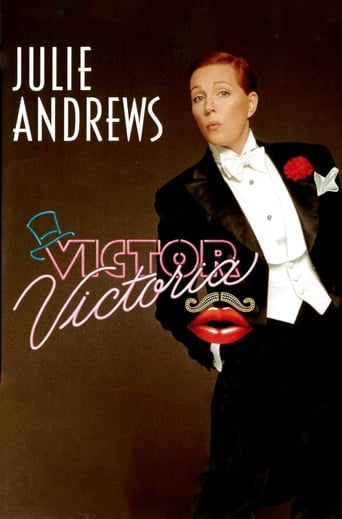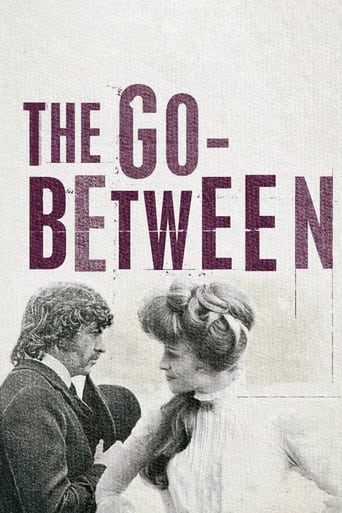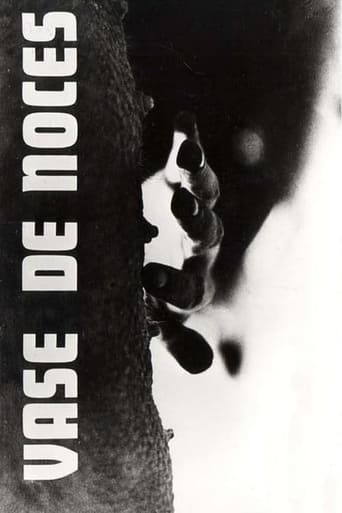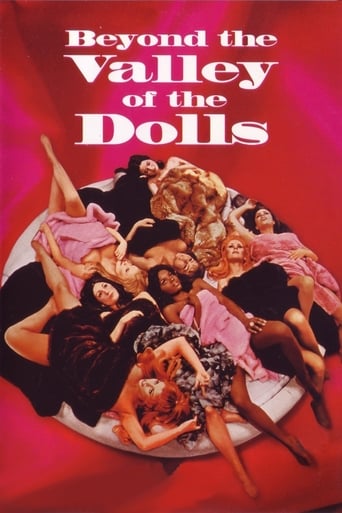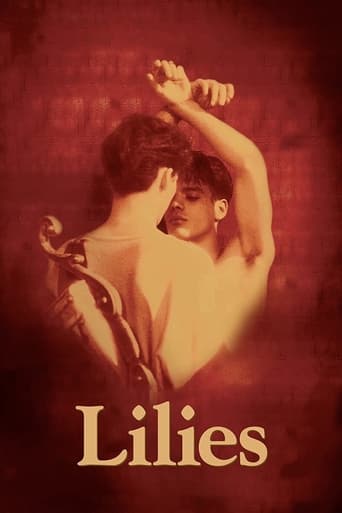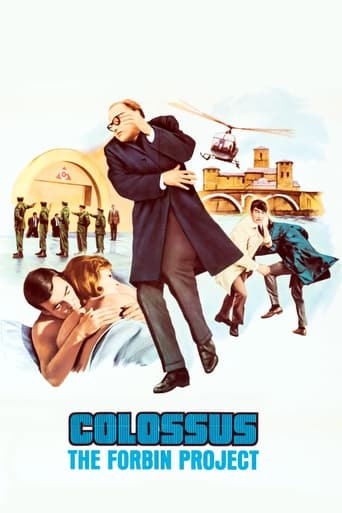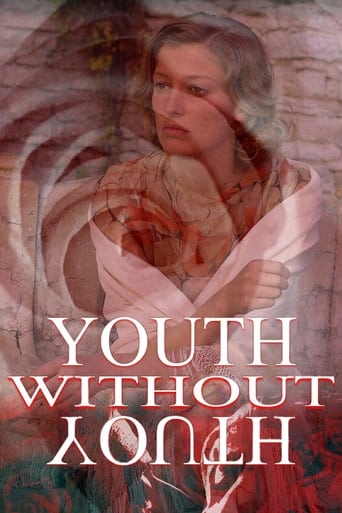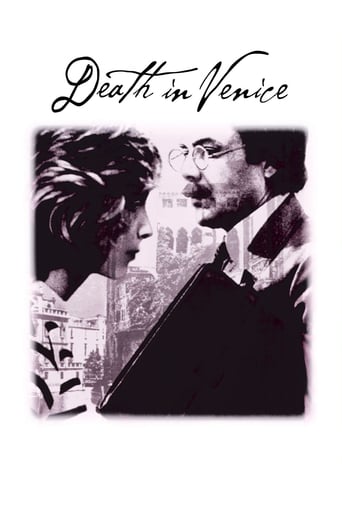


Death in Venice
Composer Gustav von Aschenbach travels to Venice for health reasons. There, he becomes obsessed with the stunning beauty of an adolescent Polish boy named Tadzio who is staying with his family at the same Grand Hôtel des Bains on the Lido as Aschenbach.
-
- Cast:
- Dirk Bogarde , Björn Andrésen , Romolo Valli , Mark Burns , Nora Ricci , Silvana Mangano , Marisa Berenson


Similar titles
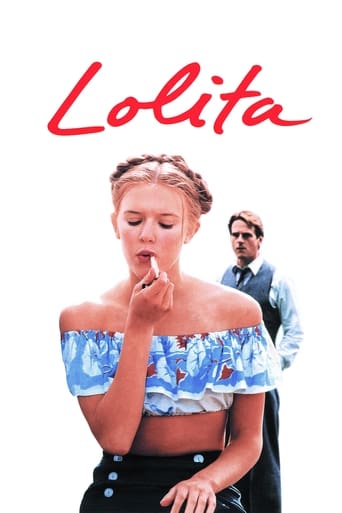
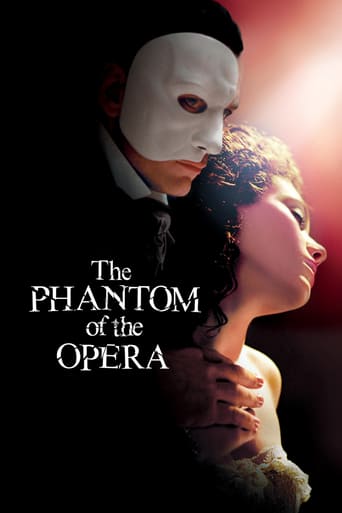
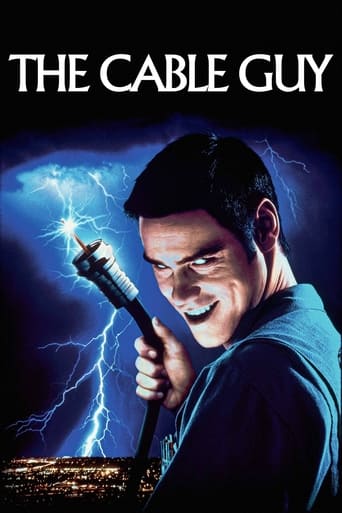
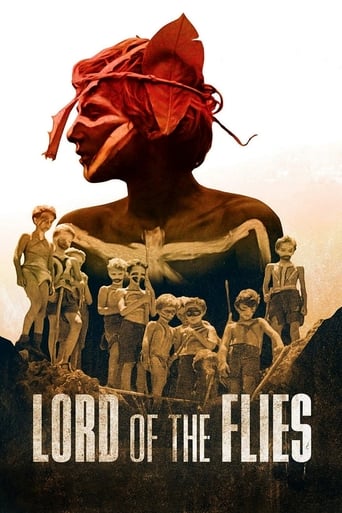

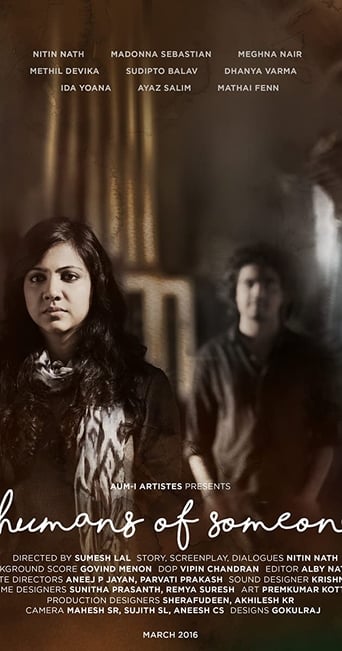
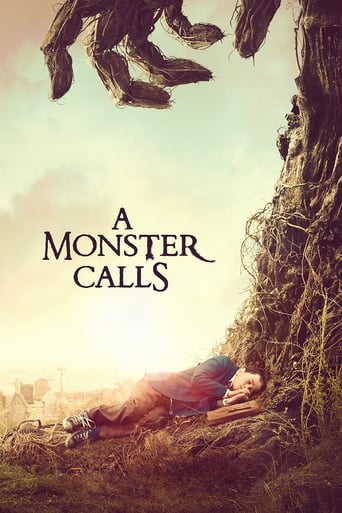
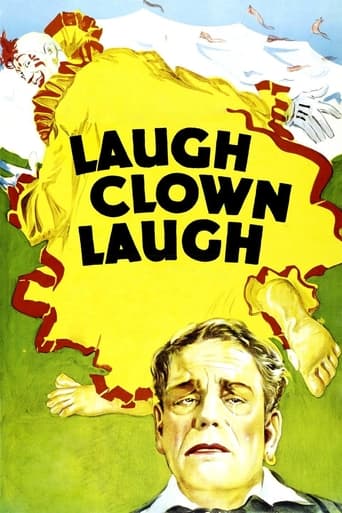
Reviews
Such a frustrating disappointment
For all the hype it got I was expecting a lot more!
everything you have heard about this movie is true.
To all those who have watched it: I hope you enjoyed it as much as I do.
This film is an excellent (though necessarily slightly different) version of Thomas Mann's novella of the same name. Its effect was so powerful that it drew me to the Venice Lido to stay at the Hotel des Bains, where both film and book are set, and even since that hotel closed, I go back regularly. To me it's about the impossibility of obtaining one's heart's desire, and to read ignorant reviews from 17 year olds makes me cringe To them I say" No, it isn't a film version of a video game..what made you think it would be?" Come back and rewatch it when you're grown up, if that ever happens.
The opening of "Death in Venice" is masterful. Gustav von Aschenbach (Dirk Bogarde) is portrayed as an over-disciplined and exhausted German composer travelling by ship to Venice. But then the film fails to live up to the pretensions of its great opening scene and becomes a story about nothing much in particular. I should emphasize the beautiful scenes in this movie, because director Luchino Visconti really does create a whole new world complete with ostentatious luxury. Yet at the centre of this world is a dull story. The film is basically about Gustav von Aschenbach's infatuation with an enigmatic Polish boy named Tadzio (Björn Andresen), which is fine except that the whole movie hangs almost entirely on this single plot point. Moreover, this infatuation amounts to Gustav becoming more and more miserable as he stalks Tadzio through the plague-ridden streets of Venice, while Tadzio gives him penetrating stares which amount to enigmatic portends. What could Tadzio be thinking? It occurred to me that Tadzio was asking himself, "Why is this stranger following me through the streets of Venice?" Once those types of thoughts entered my head, Gustav's behaviour is difficult to take seriously. Then Dirk Bogarde's Gustav made things a lot worse by being dull and prissy and putting white paint and rouge on his face to apparently appear like the living manifestation of death.While this absurd love story was unfolding, we are treated to flashbacks involving Gustav and his mercurial friend Alfred (Mark Burns) discussing art. Gustav opined that beauty can only come from the spirit and that the spirit cannot be accessed through the senses. Alfred countered that beauty can only be accessed through the senses, "evil is the food of genius," and music is the most ambiguous art of them all transformed into a science. I am not sure what the point of these discussions are, but they seem out of place in a movie like this. Equally mystifying was watching Alfred threaten to deliver Gustav to an angry mob who had just booed his symphony.This movie is not completely lacking in interest, owing to the stylish way it was filmed. Visconti inserts the soundtrack from Mahler's third, fourth, and fifth symphonies at every conceivable opportunity, which works out pretty well. The scenes in early 20th century Venice are also elegantly filmed. We see everything from the brothels to the darkly lit corridors to the gloomy decadence of the hotels to the canals. This is a visual feast for the eyes, but sadly there is not much of a story.
It all starts at the end with death entering the beach on the signal, call, invitation to lift yourself up towards the horizon and get through the door, the promise of some beauty that will never die and you have always looked for and had never been able to really find because you looked for it in pure patterns, motifs and other figures that were abstract in music and that rejected all emotions, sensations, passions, feelings. In other words the heart.At the end of his life Gustav Aschenbach discovers that a teenager, hardly more than fifteen is the beauty he has looked for all along, and he finally finds when he accepts his senses, his eyes, and his sudden attraction and emotion in front of it, of him, of Tadzio. And the blatant and blinding beauty of this youth dances in his mind, becomes a whirlwind and a hurricane in his soul. He has fallen in love with that young man, well under age for sure, and he will close his life with that gesture towards the pure sky. He will try to imitate Tadzio's gesture and he will die transmitting his insane project to this Tadzio who knew the old man was trying to get in touch with him but he was too young, and had too many relatives around him to try to contact that mysterious encounter in spite of his curiosity. That's the most insane desire an older man has: to be able to transcend death and transfer all that he has not done, he has not been able to do to that younger man he has never spoken to and yet has become an idol, an angel, a god even, definitely the one who will carry the old man's future to that future the old man will never know. That feeling is disjointed, some critics will say. And it is, for anyone who considers the normal humdrum banal world of everyday to be the proper way of assembling the pieces of the jigsaw puzzle. But if you look back in passion and in love, maybe in anger too, you find out it is the way you assemble the pawns on the chessboard just before dying that is the proper way, the best way to live in this world, and yet the older man is dying.Everything in the film is of course transforming Venice into a trap for the older man, the composer and conductor, and yet an escape way for Tadzio, the teenager who has opened the older man's consciousness to what he had ignored, ,or refused to consider, all his life. And that is pure justice: the younger one must be able to escape the death of the older one but the younger one is then, entrusted with continuing the older one's dreams, transcending their limits, transmuting their fears into light and heat, into bliss and ecstacy, the acme of spirituality, the spearhead of discovery and inventiveness.Yet the epidemic spreading in Venice is turned into a very heavy and stifling atmosphere that reminds us of some kind of medieval vision of some plague, black or bubonic, who cares. And yet the film also has a hefty and even cruel sense of humor with the four street musicians singing for the hotel guests and yet provoking them as the foreigners they are who do not understand Italian, and that's better for them because we can imagine from the body language of the main musician the obscenity of the discourse. Some flashbacks enable us to understand the context of this old man, his happy marriage and fatherhood, and the burial of his daughter when she was still young, the debate with his main friend about music and purity, the refusal of evil in man and hence of any sentiment that would make the music too concrete and material to still be music. At the same time the hammering of Beethoven's "Für Elise" when visiting what can only be a shady house and the same piece being played by Tadzio one day. Tadzio playing brings back the recollection of this event from the past back and it soils the boy in a way since he is associated with a shady lady with whom yet the old man had no contact at all, except her playing the music and her taking off some of her garments. This is probably the real dilemma of the character: he always knew beauty was in the intensity of his desires and feelings, but he always refused to yield, well not quite always after all since he was married and had a daughter. But that was made pure by the sacrament behind the relationship and the procreative instinct. But was it only that or did it become that after the death of the daughter? You will not be able to answer that question. So we are back to the final scene which is the whole story we want to remember in two gestures, in some mute and silent body language that enables the older man to finally talk to Tadzio by imitating his gesture. And yet he will be carried away disgracefully by two hotel servants with the few last tourists who have not yet left significantly stepping back from him.Death always has the last word and yet love may be able to have the next word, but the impossible connection with Tadzio makes this next word very problematic.A beautiful very sad and yet humane film with the phenomenal music of Gustav Mahler in the background surging from time to time to the foreground. Dr Jacques COULARDEAU
I have seen this brilliant film more than five times, and l have never seen a more beautiful film made for the screen in any country; every frame of this film is like a magical painting, to savor, and to see again and again. The acting by Dirk Borgard reached his peak here in 'Death in Venice', Silvana Mangano has never been more elegant. The Music by Mahler is haunting. This film is poetic master piece, it is the most beautiful work of Luchino Visconti's direction that take's you for a ride in History, and place, as no other film has ever done; right now, as l write this, l want to see it again. The young Swedish actor, Bjorn Anderson, is like a mystical painting of an innocent individual, and only a boy, he is a danger to a cultivated man of a certain age; well performed by the young actor. The scenes of the degradation of the elder professor played so brilliantly by Dirk Bogard, is so good, it is painful to see this can happen to a man of letters, l recommend this film on every level.,C.J.Blanda

